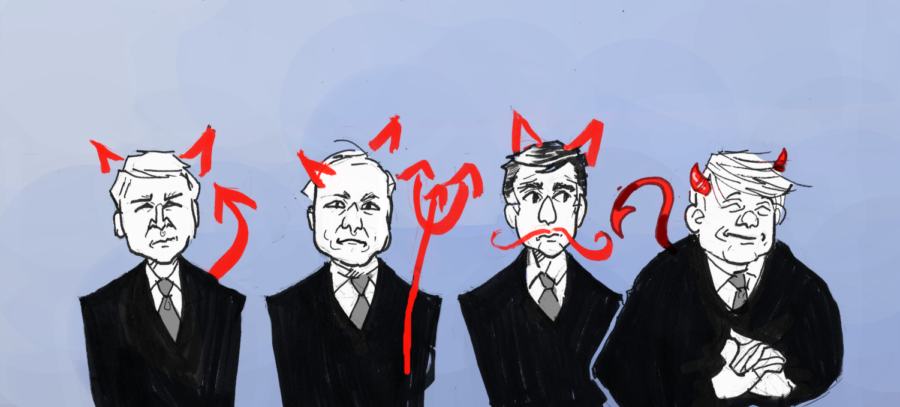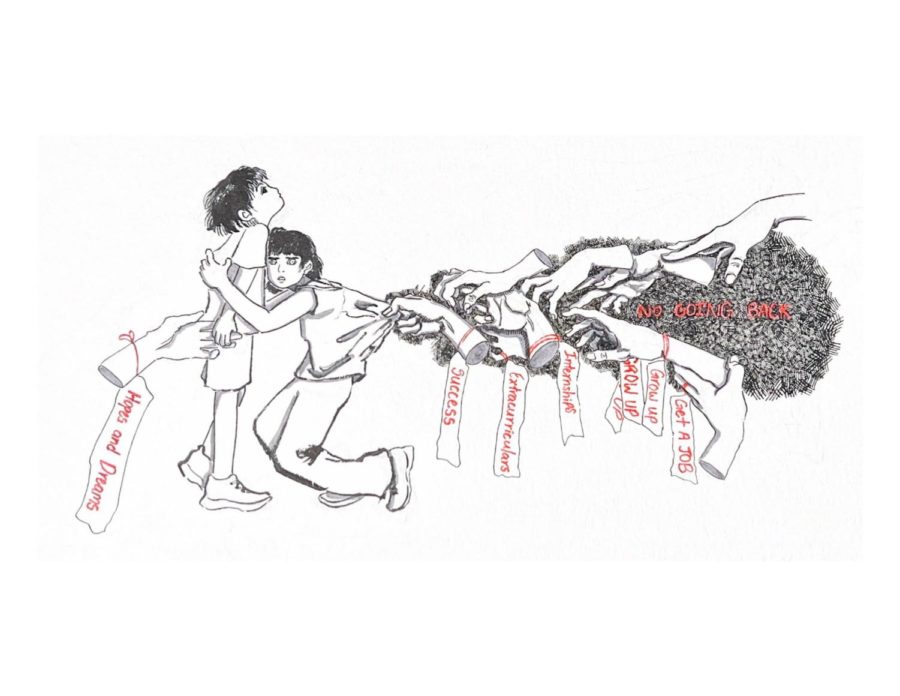The Democratic Party has a rhetoric problem. This might be a strange criticism to lodge against the party fighting an overtly racist, misogynistic, and xenophobic Republican nominee who has blatantly lied more times than all other candidates in this election cycle combined. In 2016, it feels almost treacherous to waste time criticizing Democrats when Trump presents a much starker threat. But we’ve fallen into the habit of attacking all of our opponents on overblown, farcical grounds. While this habit is by no means unique to the Democrats, its consequences for the Democratic Party are grave. Our toxic rhetorical excess has transformed Democrats into the voters who cry wolf. Faced with a candidate whose flaws are legitimately dangerous and unique, Democrats find themselves unable to say anything new. And while the threat of a prospective Trump presidency will hopefully end in November, the consequences of a broken system of political discourse could linger for years to come.
Pundits, politicians, and ordinary people from all walks of life have criticized Donald Trump as vile—rightly so. Most are shocked by how little their objections have been heeded by Trump’s supporters. When half the country finds a candidate morally repugnant, and when much of the remainder of the globe agrees, shouldn’t Trump supporters begin to question their choice? We seem to think that the sheer weight of the anti-Trump rhetoric should be enough to implode his candidacy. But Trump supporters remain multitudinous and mostly undeterred. On September 25, FiveThirtyEight, Nate Silver’s polling aggregation site, gave Trump a 42.3 percent chance of winning the election. When most of us refused to consider that Trump could even win his party’s nomination earlier this year, FiveThirtyEight’s estimate sounds 42.3 percentage points too high.
In reality, the stubbornness of Trump’s supporters isn’t actually that surprising: since we caricatured Mitt Romney, John McCain, and every modern Republican figure along the same lines, our objections to Trump have now begun to ring hollow.
The Democratic Party has fallen into a bad habit of attacking all of its foes on the same overblown, disingenuous moral grounds. Think back to Romney’s 2012 presidential run, and the many weeks dedicated to smearing Romney on ethical grounds. Mitt Romney was heartless and unfit for the presidency because he once made his dog ride on the top of his car. Mitt Romney wasn’t just an out-of-touch elitist for his 47 percent gaffe—he had rendered himself unqualified for the presidency. The remarks were unforgivable. Months of speculation and unfounded accusations about Romney’s tax returns seem overblown today, when Donald Trump refuses to release his returns at all.
Evidently, it wasn’t enough to criticize Romney’s policy stances. It wasn’t even enough to identify his personal shortcomings for what they were. We had to eviscerate his character, stretching the limits of credulity. We had to make him seem malevolent. In the short run, this is a neat political trick. Worried about low voter turnout? Want to ensure that your lazy neighbor goes to the polls? It won’t do to simply call one candidate less qualified than the other. He has to be evil. He has to be a threat to the fabric of society. He has to have a penchant for continuously disqualifying himself from the presidency.
Of course, many of us know that this is ridiculous. Mitt Romney isn’t evil, or heartless, and he didn’t “disqualify” himself for the presidency, although his gaffes were both insensitive and troubling. But that’s a boring story. It’s a far more expedient narrative to make the other guy unacceptable rather than less desirable, heartless rather than out-of-touch, sociopathic rather than coldly managerial. It wasn’t just Romney, either. We did the same thing with John McCain in 2008. After McCain’s “Bomb Bomb Iran” gaffe, critical floodgates burst open. McCain wasn’t simply being crass and hawkish. No one was willing to concede that he’d made a bad joke; people everywhere rushed to call him despicable, war-mongering, and unqualified for the presidency. And now, in the shadow of a truly morally bankrupt candidate, the outrage machine appears to have broken down completely. We’ve effectively made party affiliation the sole litmus test for moral standing. This makes morally-grounded criticism sound empty—when you call every other person evil, no one really is.
This isn’t just a Democratic problem; Republicans are just as guilty. You don’t need to look any further than the loud chants of “Crooked Hillary” and “Lock her up” at Trump rallies to realize that the political outrage machine has been perfected on both sides of the aisle. But in this election cycle, it’s the Democrats who find themselves effectively immobilized by trigger-happy moral policing. How can you properly critique a morally objectionable candidate when you’re accustomed to throwing around the word “evil” every four years? The audience we most need to reach with our criticism of Trump—voters still on the fence and Republicans uncomfortable with their nominee—have been desensitized to the only terms we know how to use.
Our outrage machine was designed to whip up Democratic voter turnout. When we called Mitt Romney and John McCain heartless, we weren’t trying to reach their tentative supporters; we pushed them away in an effort to ensure that less motivated Democrats still voted on Election Day. In 2008 and 2012, this worked. Unfortunately, years of insincere criticism of Republican figures (all those “evil,” “unqualified,” “heartless,” and “despicable” candidates you’d love to see on the ballot today) have left many on-the-fence voters leery of those terms in the one modern election year in which these labels fit the Republican nominee perfectly.
Yes, we’re absolutely right when we say that the Republican presidential candidate is abhorrent. But we’ve said that before. Why should a lifelong Republican heed Democratic criticism now, when every one of her past voting choices was slandered as evil and unforgivable? Why consider jumping onto the #NeverTrump ship, when its champions routinely depict you as devoid of a moral compass? The tragedy of our outrage machine, at the end of the day, is how well it worked and how it eliminated any chance of a rational dialogue in a time when such a dialogue is needed most.
Natalie Denby is a second-year in the College majoring in public policy.









